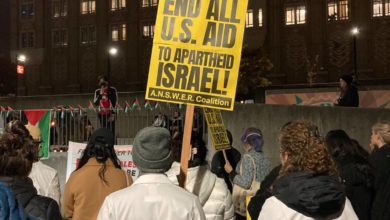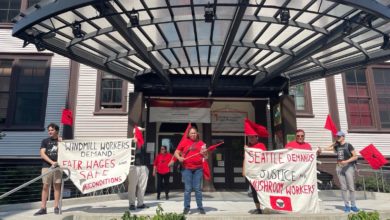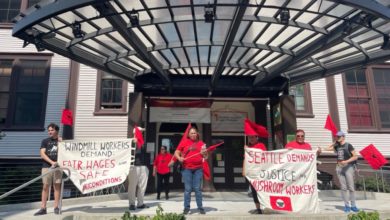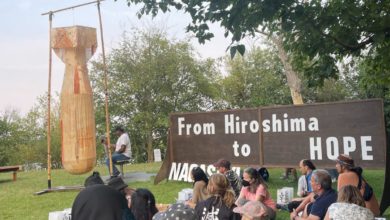On May 15, the families of missing and murdered Indigenous people and their supporters gathered in Seattle from around the North West for a day of prayer and action for “Justice for MMIP families.”
The day started at Be’er Sheva park in the Seward Park neighborhood. A Solidarity Prayer Walk traveled from there to a “call for justice gathering” at Othello Park.
May 5 has been a federally recongized day of awareness for Missing and Murdered Indigenous Women and Girls since 2017, in recognition of Hanna Harris (Northern Cheyenne) who went missing in 2013 and was found to have been murdered. Harris was a 21-year old mother of an infant son in Montana at the time of her murder. Her mother, Melinda Harris Limberhand, spoke at the gathering for justice.
“I pretty much solved my own daughter’s murder,” Harris Limberhand declared, describing the apathetic approach of law enforcement to her daughter’s disappearance. Harris Limberhand spoke of how she organized searches as well as raised money for a reward for information leading to finding the killers. She began initially holding prayer walks for her daughter; eventually these became prayer walks for the whole community. Her activism along with other families led to the passage of a bill in Montana that has put greater resources into tracking data about MMIWG.
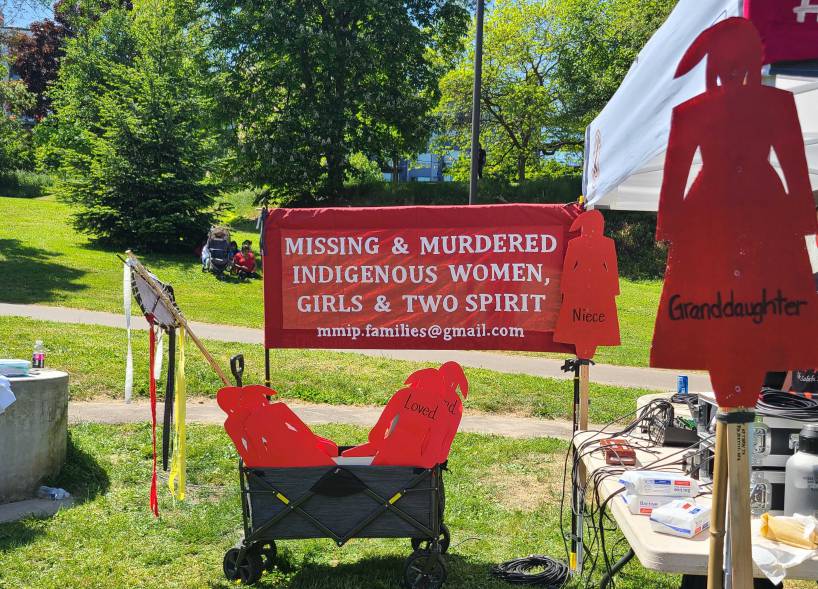
To be inclusive of missing and murdered Two Spirit people alongside Indigenous women and girls, the acronym MMIP has been adopted alongside MMIW and MMIWG. This year Pres. Joe Biden proclaimed May 5 as MMIP Awareness Day and pledged greater federal support to expedite time-sensitive searches for missing Native people and to pursue justice for victims of murder.
Cissy Strong Reyes, sister of Rosenda Strong (citizen of the Confederated Tribes of the Umatilla Indian Reservation) stood up with other family members holding a banner blazoned with Rosenda’s image. “All I have left of my sister are banners and posters,” she said. When Rosenda disappeared, Strong Reyes said, “I knew something was wrong,” but local police didn’t take the case seriously because Strong, a mother of four, was a drug addict. Strong disappeared in 2018; her remains were found in 2019, leading to a murder investigation. Her remains are still being held by the FBI instead of being returned to her family, Strong Reyes said.
“I do this because my sister has no voice, nor does my community of Toppenish, Washington,” Strong Reyes continued. “It’s been almost three years. I’m not going to stop, I am her voice.” Strong Reyes was embraced by her cousin and MMIW organizer Roxanne White (Nez Perce tribal member and descendent of Yakama, Nooksack, and Gros Ventre) on the stage.
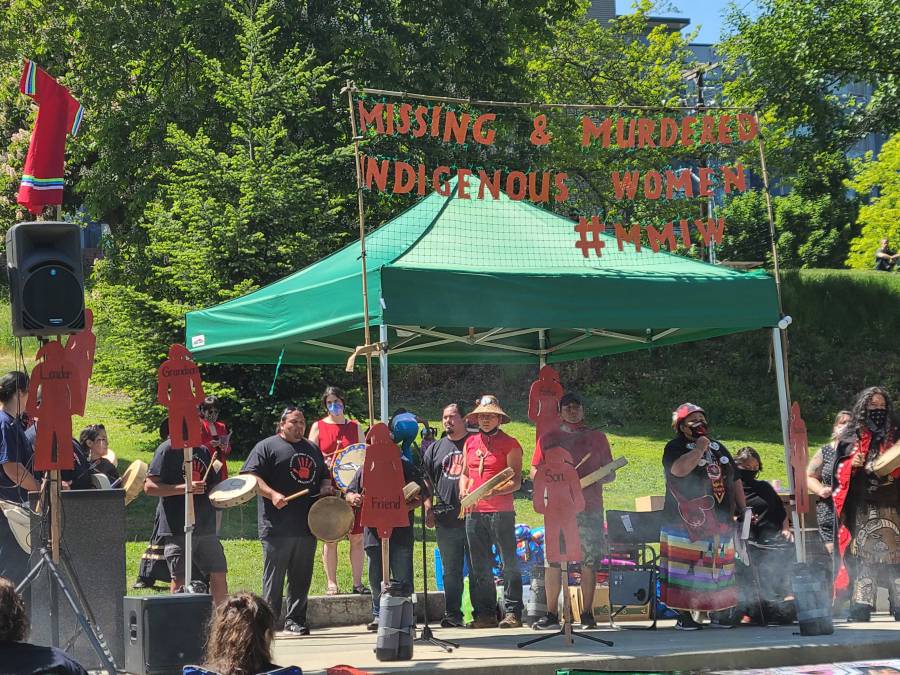
Despite the deeply tragic nature of the injustice and loss experienced by the families, the mood at the gathering was not entirely somber. Children frolicked in the park with family members. Tears of sorrow mixed with chuckles as speakers fondly recalled memories of their missing and murdered loved ones, emphasizing the humanity of those taken from their communities through trafficking and violence. The intrinsic human value of each victim has been disregarded by the powers-that-be who have not taken these murders and dissappearances seriously due to racism, speakers explained. That MMIWG and MMIP are now more widely known, that elected officials must take notice of this crisis, is only due to the relentless efforts of the families and other community members.
For more information, visit Missing and Murderind Indigenous People & Families.


